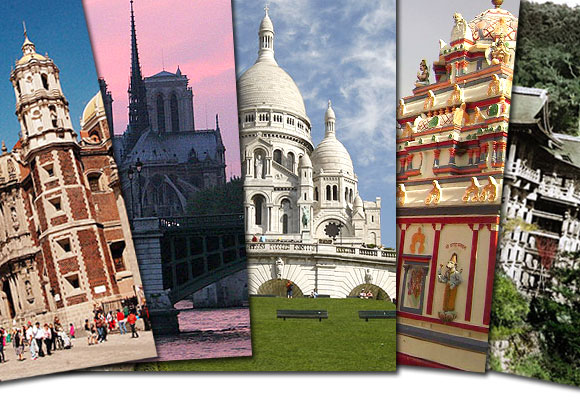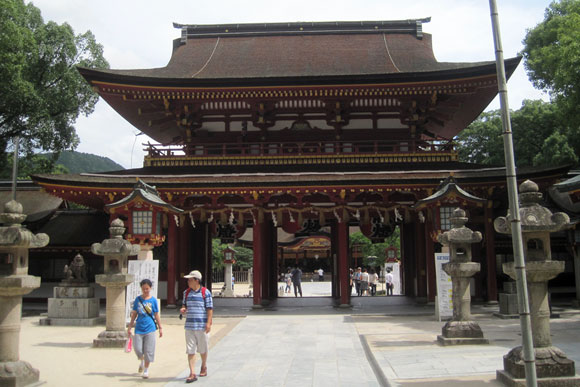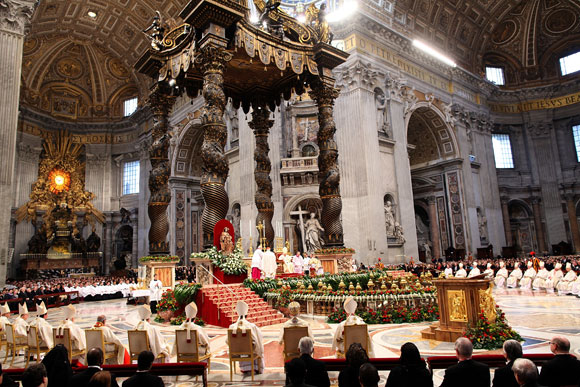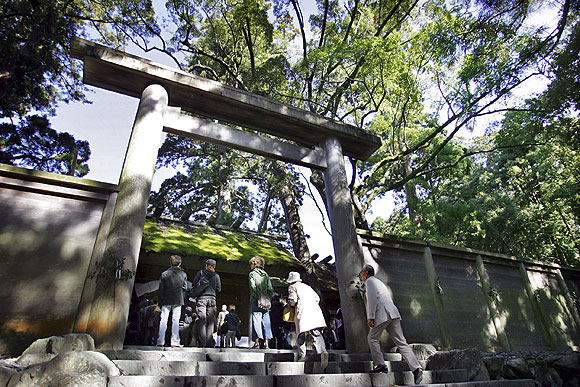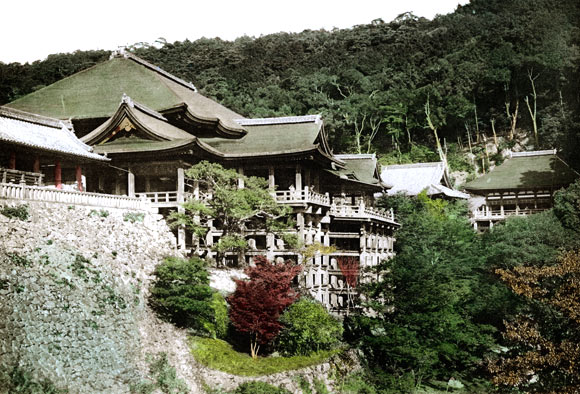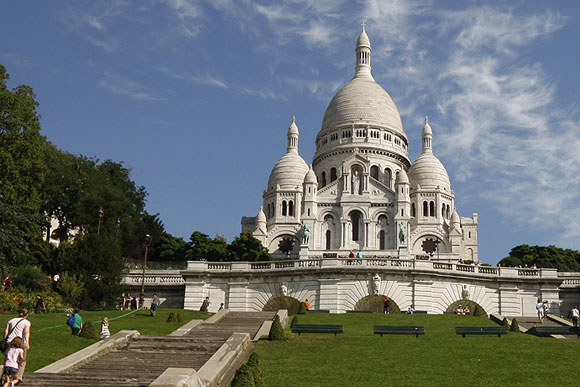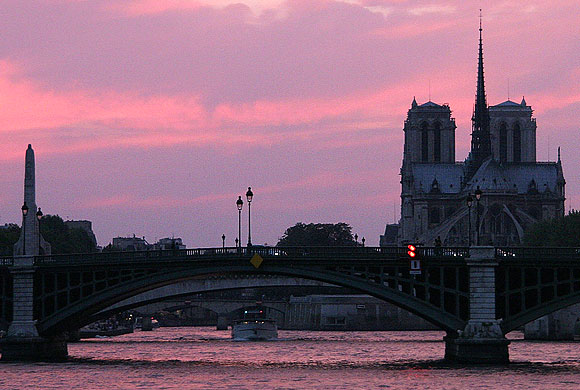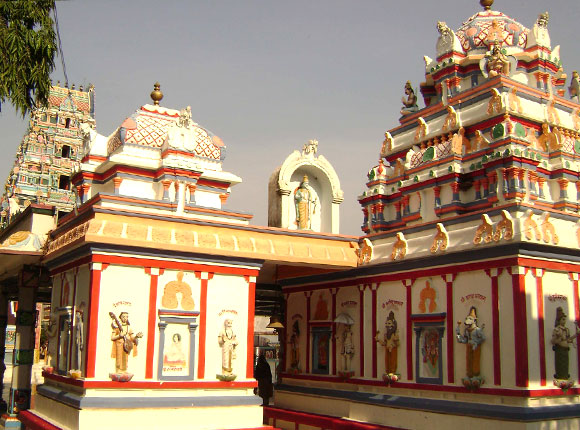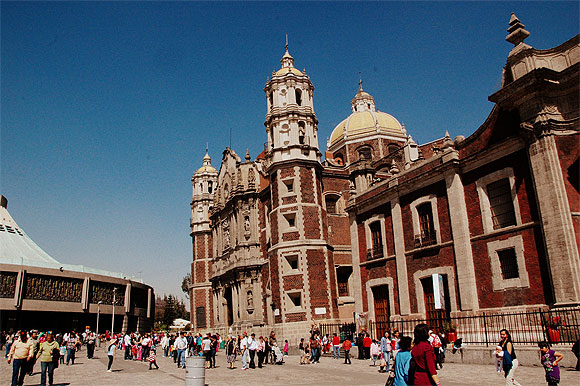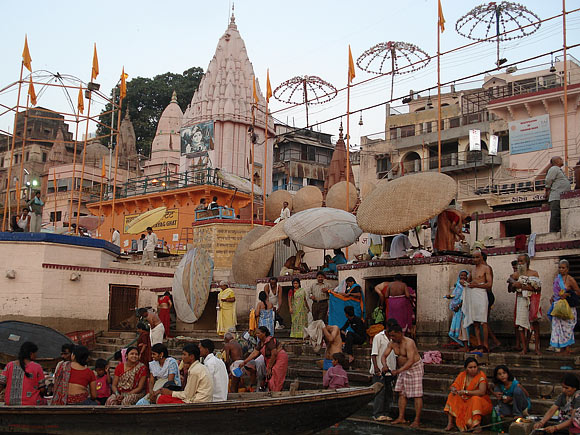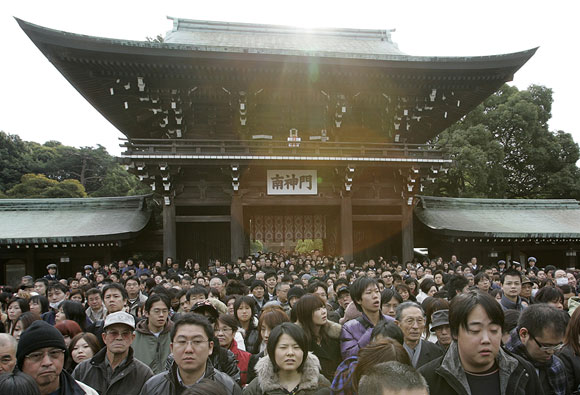 | « Back to article | Print this article |
IN PICS: The most visited sacred sites in the world
Travel magazine Travel+Leisure drew up a list of the most visited sacred sites in the world. Here's a list of the top ranking sites.
Pilgrimage has always been one of the greatest reasons for travel. Be it the Hajj or the Kumbh Mela, religion and travel have gone hand in hand for longer than we can imagine. The travel magazine Travel+Leisure recently drew up a list of the most visited travel sites in the world.
While the good folks at Travel+Leisure did not attempt to differentiate between the devout and secular -- largely because most of these sites are open to public and it is therefore impossible to put an accurate figure on the reasons for people travelling there – they also restricted their search to holy places associated with only the major religions that are being practiced in the world. This struck temples of Greek Gods, Mayan pyramids and Stonehenge.
Also struck off the list were gatherings like the Kumbh that is said to draw more than 60 million visitors every 12 years as well as the Shroud of Turin that is shown only every few years since they 'focused on actual, physical structures'.
While two Indian sites found their way into the top ten, Amritsar's Golden Temple couldn't because they 'couldn't get a reliable confirmation for India's Sikh Golden Temple of Amritsar, suggested to receive 10,000 visitors daily' also missing from the list is the 'Temple Square in Salt Lake City because 'because the site's representative wasn't able to give (them) a official number of annual visitors -- just the statement that 'millions' pass through annually'. They did acknowledge however that 'the Mormon site purports to be the No 1 tourist attraction in Utah'.
Here are some of the sites that topped the list:
Dazaifu Tenmangu, Japan
Built over the grave of Sugawara no Michizane, a poet, scholar and a man who has been called the god of calligraphy and literature, the shrine has over 6,000 Asian plum trees of 167 varieties as well as 1,500 year-old camphor trees and fields of iris.
To the right of the honden or the main shrine stands a tree known as Tobiume which according to a legend, Michizane yearned for so muchm it was uprooted and brought here after he left Koyoto in exile!
Annual Visitors: 6.6 million
Source: Japan National Tourism Organization (JNTO)
St. Peter's Basilica, Vatican City, Rome
One of the holiest Catholic site that features some of the most beautiful paintings, marble columns, statues and works of some of the greatest Renaissance artists including Raphael, Bernini and Michelangelo among others, St. Peter's Basilica in the Vatican City is ranked number 11 in the list of the most visited sacred sites in the world.
Annual Visitors: 7 million
Source: Italian Government Tourist Board
Ise Jingu, Ise, Japan
A Shinto shrine dedicated to goddess Amaterasu-ōmikami the Ise Grand Shrine is located in the city of Ise in Mie prefecture, Japan. Ise Jingu is a shrine complex that has a number of shrines that surround the two main shrines -- Naikū and Gekū.
Said to be one of holiest and most important sites, the shrine is also said to be home to the Sacred Mirror (that is part of the Imperial Regalia of Japan). Access to the shrine however is limited with visitors being permitted to see little beyond the thatched roofs.
According to the rule, the high priest or priestess must come from the Japanese imperial family and must watch over the shrine.
Annual Visitors: 8.5 million
Source: Japan National Tourism Organization (JNTO)
Kiyomizu-dera and Kinkaku-ji Temples, Kyoto
Offering panoramic views of Koyoto's city centre, the Kiyomizu-dera or 'Pure Water Temple' ranks number seven in Travel+Leisure's list of the most visited sacred sites.
Dating back to 778, the present buildings of the Kiyomizu-dera were constructed in 1633, during a restoration. It takes its name from a waterfall within its temple complex.
Most fascinatingly, there isn't a single nail used in the construction of Kiyomizu-dera.
Kinkaku-ji or the Temple of the Golden Pavilion is a Zen Buddhist temple in Kyoto, Japan that has been designated as a National Special Historic Site and a National Special Landscape. Attracting millions of visitors annually, the Kinkaku-ji is known amongst Apple users as 'Golden Palace' as it appears in a photograph in the desktop picture art of Apple's OS X computer operating system.
Tied at number seven are Naritasan Shinshoji Temple in the Chiba Prefecture and Tsurugaoka Hachimangu Shrine in the Kanagawa Prefecture of Japan.
Annual Visitors: 10 million and 6 million
Source: Japan National Tourism Organization (JNTO)
Sacre Coeur Basilica, Paris
Located at the summit of the butte Montmartre, the Basilica of the Sacred Heart of Paris is dedicated to the Sacred Heart of Jesus, in Paris, France. Designed by Paul Abadie, its construction began in 1875 and was finished in 1914. After the end of World War I in 1919, it was consecrated and attracts millions of visitors, in part we suspect fro the stunning views it offers of Paris.
Annual Visitors: 10.5 million
Source: Office of Tourism and Congress in Paris
Notre Dame Cathedral, Paris
Known as the Notre Dame Cathedral or quite simply Notre Dame is one of the most prominent landmarks of Paris. Considered to be one of the best examples of French Gothic architecture the cathedral was vandalised during the French Revolution when most of the religious imagery was destroyed.
The Notre Dame is one of the most-visited tourist site in France and has several statues of saints, angles and stained-glass windows depicting biblical stories.
Annual Visitors: 13.65 million
Source: Office of Tourism and Congress in Paris
Tirupati Tirumala Devasthanams Temple, Andhra Pradesh, India
Said to be one of the richest religious shrines in the world the Tirupati Tirumala Devasthanams Temple recently crossed a record-breaking collection of Rs 5.73 crore after a devotee from New Delhi contributed Rs 2 crore to the temple.
The temple is located in the hill town of Tirumala in the Chittoor district of Andhra Pradesh with Lord Venkateswara, a form of the Hindu god Vishnu being its presiding deity.
Annual Visitors: 18.25 million.
Source: India Tourism Office
Basilica of Our Lady of Guadalupe, Mexico City
A pilgrimage site since 1531-32, The Basilica of Our Lady of Guadalupe is a Roman Catholic church and the National Shrine of Mexico.
Built at the place where Our Lady of Guadalupe appeared to Juan Diego Cuauhtlatoatzin, the Basilica is an important site for Catholics with over 20 million people visiting it each year.
December 12 is the feast of Our Lady of Guadalupe and the day when it sees the most number of visitors.
Annual Visitors: 20 million
Source: Mexico Tourism Board
Kashi Vishwanath Temple, Varanasi, India
Dedicated to Lord Shiva and located in the ancient city of Varanasi, the Kashi Vishwanath Temple is said to be one of the holiest temples for the Hindus that every Hindu is expected to visit at least once in his/her lifetime. The temple is worth visiting as is the city that is known to be one of the oldest living city in the world with at least 3500 years of documented history.
Varanasi is also known as Kashi and the presiding deity of the temple is known as Vishwanath or the Ruler of the Universe -- hence the name Kashi Vishwanath.
Annual Visitors: 21.9 million
Source: India Tourism Office
Meiji Shrine and Sensoji-Temple, Tokyo
The thing with Japan is you really won't ever run out of temples and shrines to visit. The Meiji Shinto shrine is built to honour the souls of Emperor Meiji and Empress Shoken built in 628 while Sensoji has been dedicated to Bodhisattva Kannon.
Located in Tokyo, the Meiji Shrine is surrounded by a heavily wooded forest that houses a traditional teahouse, two museums, a self-pumping well and a lot more.
The Sensoji Temple and its surroundings perhaps represent best the architecture and charm of old Tokyo so much so they have become emblematic of Japanese culture for the world outside. Besides hosting a temple, the block has a market, a large pagoda and numerous shrines.
Annual Visitors: 30 million each
